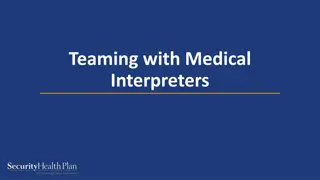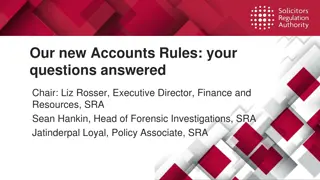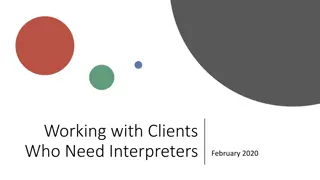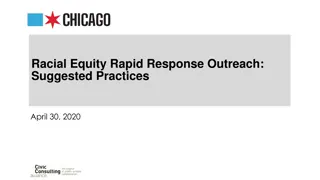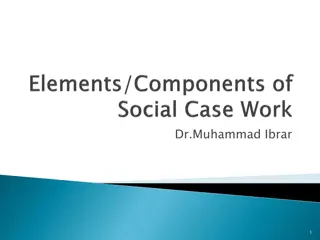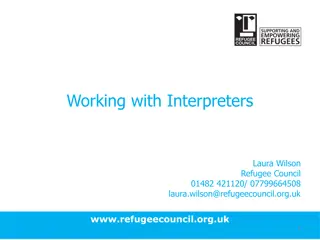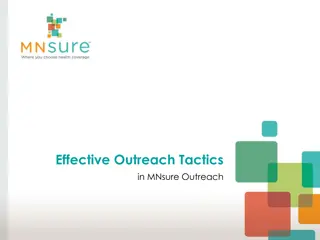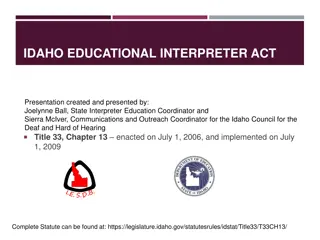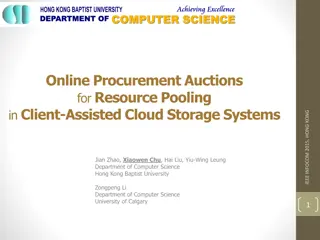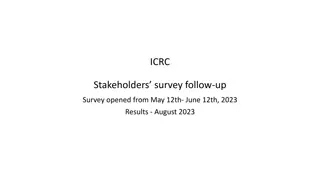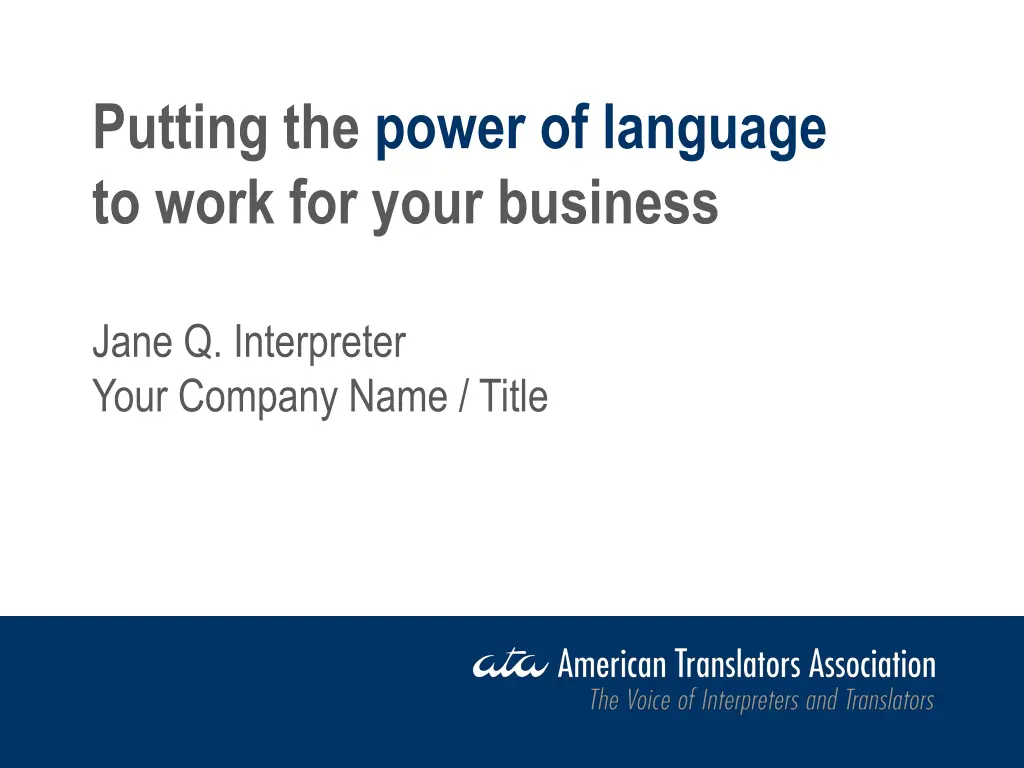
Empower Your Business with Professional Interpreters
Enhance your business communication with professional interpreters. Learn why using an interpreter is essential, how to plan ahead, hire the right professional, and ensure high-quality communication. Avoid language barriers and maximize your reach with the power of language expertise.
Download Presentation

Please find below an Image/Link to download the presentation.
The content on the website is provided AS IS for your information and personal use only. It may not be sold, licensed, or shared on other websites without obtaining consent from the author. If you encounter any issues during the download, it is possible that the publisher has removed the file from their server.
You are allowed to download the files provided on this website for personal or commercial use, subject to the condition that they are used lawfully. All files are the property of their respective owners.
The content on the website is provided AS IS for your information and personal use only. It may not be sold, licensed, or shared on other websites without obtaining consent from the author.
E N D
Presentation Transcript
Putting the power of language to work for your business Jane Q. Interpreter Your Company Name / Title
Q Why use an interpreter? A Because reaching out to people in their own language draws them in and makes it easier to work with (and sell to) them.
Q A Why use a professional interpreter? Because in many settings you are legally obligated to hire a qualified professional.
If you are relying on limited language skills to communicate, important pieces of information can be lost and trust can suffer irreparable harm.
Here are four simple tips to help you ensure high-quality communication while minimizing cost and stress: 1. Plan ahead 2. Hire a professional 3. Spend wisely 4. Listen to your interpreter
1. Plan ahead to avoid stress and errors and to save time and money.
1. Plan ahead with these questions: 1. What language(s) do I need to communicate in and how can I find an interpreter? 2. How will I communicate with my audience? 3. What technology might I need? 4. What informal situations are planned? 5. Do I have written materials that go along with my event, and do they need to be translated?
2. Hire an experienced professional. Being bilingual is not enough.
What you should be looking for: 1. Experience 2. Fluency in working languages 3. Periods of residence abroad 4. Certification, when applicable, or verified credentials 5. Specialized training and continuing education 6. Membership in professional associations
3. Spend wisely and be realistic about your budget. Quality professional interpreting and advance planning save you money in the long run.
Things to think about: 1. Do all expected interactions require an interpreter? 2. What is a reasonable budget? 3. Higher fees for last-minute plans. 4. Expect higher costs for highly specialized subject areas and languages of lesser diffusion.
Listen to your interpreter. 1. Expect questions and be ready to answer them. A good interpreter asks questions to understand your needs and your event. 2. If the event will include written materials, let your interpreter review them before they are finalized. 3. Your interpreter can provide cultural insight to help facilitate communication. Share event plans.
With a professional interpreter, you are not just buying words. You are harnessing expertise the power of language to communicate the right message, in any language. Hiring a professional interpreter allows you to focus on your own business.



